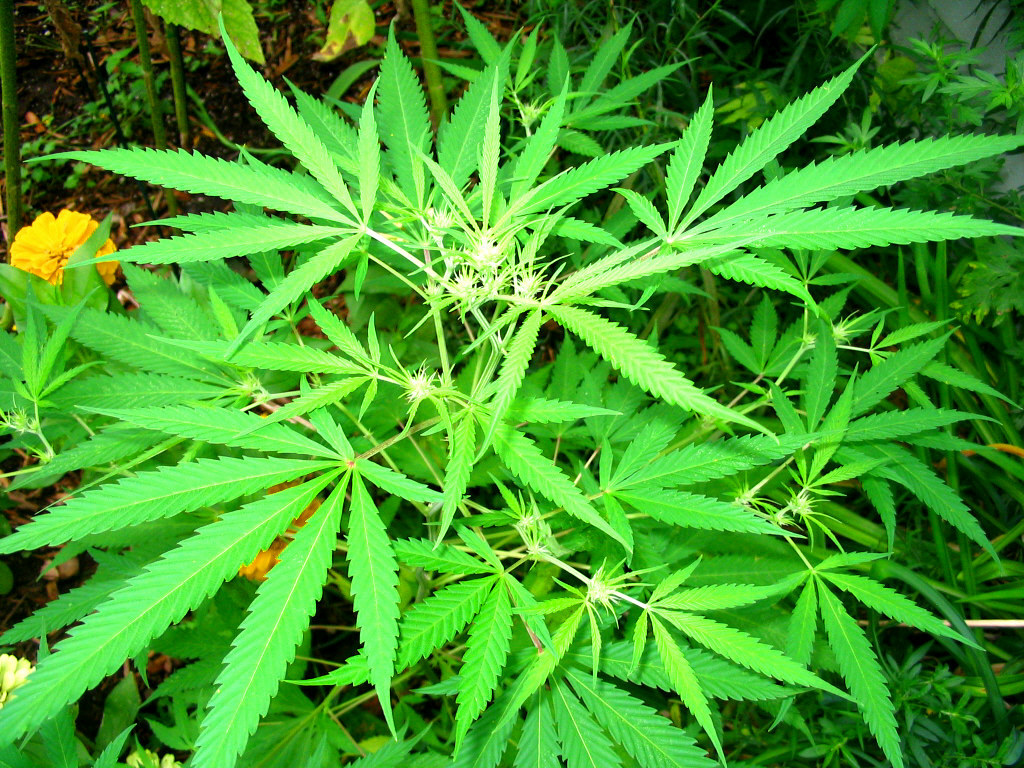
Wikipedia
The U.S. Food and Drug Administration has set its sights on working to learn more about the safety of CBD and related products.
CBD has gained in popularity as it can be found in numerous products such as drugs, food, dietary supplements, cosmetics, pet food and other animal health products.
“The recent increase in the number of CBD products may be because of both recent changes in state law, and because the 2018 Farm Bill removed hemp — defined as cannabis and cannabis derivatives with very low concentrations (no more than 0.3% on a dry weight basis) of THC — from the definition of marijuana in the Controlled Substances Act. However, CBD products are still subject to the same laws and requirements as FDA-regulated products that contain any other substance,” it said in a press release.
The FDA says it wants to do more research on cannabis and cannabis-derived compounds, particularly CBD. However many questions remain surrounding CBD.
The organization is curious about the effects CBD has on the body and in particular the toxicity level of the liver.
“These are serious risks that can be managed when an FDA-approved CBD drug product is taken under medical supervision, but it is less clear how these risks might be managed when CBD is used far more widely, without medical supervision and not in accordance with FDA-approved labeling,” the press release said.
The FDA also wants to look at the cumulative exposure to CBD if consumers access a broad range of products. The government entity wants to know more about the effects of CBD on special populations and animals.
Geoffrey Whaling, chairman of the Washington-based National Hemp Association, said the sector was rife with issues.
“This is one of the first, if not the first time in the history of the FDA that they are being asked to fulfill their role of oversight on a product that has been in wide commercial distribution for 5 years,” Whaling said. “Some CBD producers genuinely wanted to advance these products for wellness, others looked to make a quick buck.”
Whaling said there has been an abuse of federal custom and border patrol importation codes whereas cold press hemp oil (which comes from the seed and has no CBD) has been used to import concentrated CBD oil from other countries into the US. That oil has been reconstituted here, packaged and labeled as if it was grown under a U.S. State Hemp permit. Some have even gone as far as misusing the USDA Organic logo, without authorization.
“What we have seen are products on shelves today that are mislabeled, make medical claims that have not been proven, promote containing high levels of CBD (and have none) and, there is no way to track where these products have been grown, what growing methods have been used, who processed/extracted the CBD and using what method (some use butane and ethanol which leaves residue),” Whaling said.
So should consumers be alarmed by all of this?
“We should all want to have comfort knowing that products we ingest are safe and, if they make medical claims, those claims have been proven out through FDA protocols. We see that there should be two paths for CBD — one that allows CBD to be a dietary supplement (limiting doses, but contained in various products) the other as a prescription dose recommended by a doctor,” Whaling said.
Whaling also has some advice to consumers.
He said they should make sure they do plenty of research before buying CBD products.
“Make sure that CBD products have third party lab results posted on their website. Better yet — only consider products that have a QR code on them that gives complete seed to sale information, including state authorized grow permit information,” Whaling said.
Whalling said all humans have an endocannabinoid system and that they have millions of CB1 and CB2 receptors that respond very well to the reintroduction of CBD into their systems.
“Yet there is so much that we do not know and need to research. CBD is but one of the 100-plus elements being discovered in Hemp and cannabis. CBG, CBA have shown great potential and benefits. But we need further research,” Whaling said.
Whaling said that consumers also need to reintroduce the word cannabis into their vocabulary and know that hemp is cannabis and marijuana is cannabis, but hemp is not marijuana




